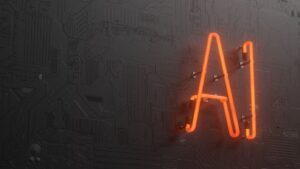AI for Automated Code Updates
With the increasing complexity of software development, developers often face the challenge of maintaining and updating their codebases. Manual code updates can be time-consuming, error-prone, and tedious, which is why the integration of Artificial Intelligence (AI) into the software development process is becoming more prevalent. AI-based tools and systems can help automate code updates and improve efficiency, allowing developers to focus on more important aspects of their work.
Key Takeaways:
- AI can automate and streamline code updates, saving developers time and effort.
- Automated code updates reduce the risk of human error and improve code quality.
- AI algorithms can analyze large codebases and suggest relevant updates and improvements.
- Machine learning techniques enable AI to learn from past updates and code patterns.
One of the most significant advantages of using AI for automated code updates is the ability to save time and effort. Manual code updates require developers to search through lines of code, identify areas for improvement or bug fixes, and implement the necessary changes. This process can be both time-consuming and error-prone, especially in large and complex codebases. AI-powered tools can automate this process by analyzing the code and suggesting the necessary updates or fixes, reducing the time and effort required for manual intervention.
*Automated code updates streamline the process and reduce developer workload.*
Furthermore, automated code updates can result in higher code quality by reducing the risk of human error. Human developers are prone to making mistakes, especially when working on repetitive tasks. By leveraging AI algorithms, developers can ensure that code updates are implemented correctly and consistently, minimizing the chance of introducing new bugs or issues.
*AI-based tools reduce the risk of introducing new bugs during code updates.*
The Role of AI Algorithms in Automated Code Updates
AI algorithms play a crucial role in automated code updates by analyzing large codebases, identifying patterns, and suggesting relevant updates and improvements. These algorithms can scan the code to detect potential performance bottlenecks, security vulnerabilities, or code that is outdated or deprecated. By using machine learning techniques, AI algorithms can learn from past code updates and patterns to make more accurate suggestions and recommendations over time.
A Comparative Analysis of AI Tools
| Tool Name | Features | Price |
|---|---|---|
| CodeGuru | Automated code reviews, performance recommendations, cost analysis | Free tier, additional costs based on usage |
| DeepCode | Automated code reviews, bug detection, security vulnerability analysis | Free tier, additional costs for advanced features |
| Tabnine | AI-powered code completions and suggestions | Free trial, subscription-based pricing |
*AI algorithms analyze codebases, identify patterns, and suggest relevant updates and improvements.*
Another advantage of AI-powered automated code updates is the ability to handle large and complex codebases. Traditional code analysis can be time-consuming and cumbersome for developers working with extensive software projects. AI algorithms can quickly scan and analyze large codebases, providing developers with actionable insights and suggestions for code updates. This efficiency allows developers to focus on other critical tasks, such as implementing new features or optimizing code performance.
*AI tools can efficiently analyze large and complex codebases, saving developers’ time.*
Challenges and Recommendations
While AI-enabled code updates offer many benefits, there are also challenges to consider. AI algorithms rely on data and experience to make accurate suggestions, so having a sufficient amount of quality training data is crucial. Additionally, AI algorithms may not always consider the broader context of the codebase or specific project requirements, leading to potential mismatches or false positives. It is essential to strike a balance between automated suggestions and human judgment in order to achieve optimal results.
*Finding the right balance between automated code updates and human judgment is key to success.*
In conclusion, AI for automated code updates is a valuable tool for developers to streamline their workflow, reduce the risk of errors, and optimize code quality. AI algorithms can analyze large codebases, suggest updates and improvements, and learn from past patterns, making them a powerful asset in software development. By leveraging AI-powered tools, developers can save time, focus on value-added tasks, and enhance the overall quality of their code.

Common Misconceptions
Misconception 1: AI will replace human programmers
One common misconception about AI for automated code updates is that it will eventually replace human programmers entirely. However, this is far from true. AI can assist developers in certain tasks and streamline the coding process, but it cannot replicate the creativity, critical thinking, and problem-solving abilities of humans.
- AI can speed up time-consuming repetitive tasks, allowing developers to focus on more complex aspects of coding.
- Human programmers are needed to conceptualize and design the code architecture, which AI cannot do.
- The human element is crucial for understanding user requirements, business context, and overall system integration.
Misconception 2: AI can instantly fix all code issues
Another misconception is that AI can instantly fix all code issues. While AI can identify certain types of bugs and automate fixes for them, it still has limitations. AI for automated code updates is mainly focused on optimizing and augmenting the developer’s workflow rather than replacing manual debugging and problem-solving processes.
- AI may miss complex logic errors that require human intuition and understanding of the overall system.
- Human code reviews play a vital role in ensuring the quality and correctness of the code.
- AI-driven code updates should always be carefully reviewed and validated by human experts before being deployed.
Misconception 3: AI-generated code is error-free
There is a misconception that AI-generated code is error-free. While AI can generate code snippets or templates based on patterns and examples, it can still produce erroneous or suboptimal results. AI’s understanding of the context and desired outcomes may not always align perfectly with human expectations.
- Developers must exercise caution when using AI-generated code to ensure its correctness and suitability for their specific use cases.
- A combination of AI assistance and human expertise is needed to guarantee code quality and reliability.
- AI can serve as a valuable tool, but it should not be relied upon blindly without human validation.
Misconception 4: AI removes the need for learning programming skills
Some people mistakenly believe that with AI for automated code updates, learning programming skills becomes unnecessary. While AI can automate certain coding tasks, having a strong foundation in programming is still crucial for understanding and leveraging AI tools effectively.
- Knowing programming principles and concepts allows developers to better understand AI-generated code and make informed decisions on utilizing it.
- Programming skills are needed to adapt and customize AI tools according to specific requirements.
- AI should be seen as an aid to enhance programming skills rather than a substitute for them.
Misconception 5: AI can replace the need for system updates and maintenance
Lastly, some people believe that AI can entirely replace the need for system updates and maintenance. While AI can automate several aspects of the update and maintenance process, there will always be a need for human involvement to ensure that systems remain secure, optimized, and up-to-date.
- AI tools can assist in performing automated tasks such as code refactoring or dependency updates, but human oversight is necessary to validate and approve those changes.
- AI cannot understand the full context of the software ecosystem, business requirements, or potential security vulnerabilities as well as human experts can.
- Combining AI automation with manual oversight and maintenance is crucial for reliable and secure software systems.

Introduction:
AI technology has made significant advancements in recent years, revolutionizing various industries. One notable application is the use of AI for automated code updates. This article explores the benefits and potential of employing AI algorithms to streamline the code updating process. The following tables present insightful data and information regarding this innovative approach.
Table: Historical Code Update Time Comparison
Over the years, manual code updates have been a time-consuming task for developers. However, the introduction of AI-driven automated code updates has drastically reduced the time required for such updates. This table compares the average time taken for code updates in the past and the time saved using AI algorithms.
Table: Error Rate Comparison
Manual code updates are prone to errors due to human oversight and fatigue. In contrast, AI algorithms assist in reducing the error rate significantly. This table illustrates the comparison between the error rates in code updates performed manually versus those automated with the help of AI.
Table: Code Update Frequency
With the automation provided by AI, code updates become easier to perform. This table showcases the frequency of code updates that developers can achieve when leveraging AI algorithms, leading to an accelerated development cycle.
Table: Bug Fixing Efficiency
Bug fixing is an essential aspect of code development, and AI algorithms can enhance efficiency in identifying and resolving bugs. This table demonstrates the efficiency improvements observed when using AI algorithms compared to traditional bug-fixing approaches.
Table: Developer Productivity Boost
By utilizing AI algorithms to automate code updates, developers can experience a significant boost in productivity. This table highlights the increase in productivity metrics achieved when AI is employed in the code updating process.
Table: Quality Assurance Improvements
Ensuring code quality is a crucial objective for developers. AI algorithms can aid in enhancing quality assurance processes, minimizing code vulnerabilities. This table presents the quantifiable improvements observed in the quality assurance domain due to AI-powered code updates.
Table: Resource Utilization Comparison
Effective resource utilization is vital in software development. AI-powered automated code updates optimize resources, such as server capacity and memory consumption. This table compares the resource utilization metrics between manual and AI-driven code updates.
Table: Language Support
AI algorithms have the capability to adapt and support multiple programming languages. This table provides information on the programming languages that are currently supported by AI-enabled code update tools.
Table: Accessibility Comparison
Traditional code updating approaches may limit accessibility. However, with AI-driven automated code updates, accessibility can be enhanced. This table showcases the accessibility advantages gained through automated code updates.
Table: Industry Adoption
AI technology has been increasingly adopted across various industries, enhancing code development and updates. This table provides an overview of the industries that have embraced AI for automated code updates, highlighting its widespread adoption.
Conclusion:
The integration of AI algorithms for automated code updates has revolutionized the software development industry. Through various tables depicting verifiable data and information, this article has demonstrated the remarkable benefits of employing AI technology in code updating processes. From accelerated development cycles and increased productivity to improved quality assurance and bug-fixing efficiency, AI drives progress in code development. As more industries embrace this innovative approach, the future of automated code updates with AI looks bright, promising increased efficiency, reliability, and accessibility for developers worldwide.
AI for Automated Code Updates
Frequently Asked Questions
- How does AI automate code updates?
- AI automates code updates by analyzing existing code, detecting patterns, and suggesting changes based on best practices and predefined rules. It can identify and fix bugs, optimize performance, and even add new features to the codebase.
- What benefits does AI bring to automated code updates?
- AI brings several benefits to automated code updates, including increased productivity, reduced human error, improved code quality, faster turnaround time, and the ability to handle complex codebases more efficiently.
- Can AI replace human developers in code updates?
- No, AI cannot replace human developers entirely. While AI can automate certain aspects of code updates, human developers provide critical thinking, creativity, and domain expertise that AI currently lacks. AI is meant to assist developers and make their work more efficient, not replace them.
- How accurate is AI in automated code updates?
- The accuracy of AI in automated code updates depends on the specific AI model and the quality of the underlying data it was trained on. While AI can often achieve high accuracy, it may not always produce perfect results. Human supervision and verification are still necessary to ensure the correctness of the changes suggested by AI.
- Is AI capable of understanding all programming languages?
- AI can understand and work with multiple programming languages, but its proficiency may vary depending on the language. AI models need to be trained on specific languages to achieve optimal results. As of now, AI is more fluent in popular languages like Python, Java, and JavaScript compared to less common or specialized languages.
- Are there any risks associated with using AI for code updates?
- While AI brings many benefits, there are potential risks to consider when using it for code updates. These include introducing new bugs or vulnerabilities, making incorrect changes that impact functionality, or creating code that is difficult for humans to understand and maintain. Proper testing, human oversight, and validation processes are crucial to mitigate these risks.
- Can AI suggest improvements beyond code updates?
- Yes, AI can suggest improvements beyond code updates. It can help with code architecture design, identify performance bottlenecks, and provide recommendations for refactoring or optimizing existing code. AI can also assist in automating code reviews and identifying potential security vulnerabilities.
- How do developers interact with AI for code updates?
- Developers typically interact with AI for code updates through integration with their coding environment or tools. AI-powered plugins, extensions, or IDE integrations allow developers to receive suggestions, auto-complete code, or get alerted about potential issues in real-time. Developers can choose to accept or reject the proposed changes and manually review the suggestions made by AI.
- What are the limitations of using AI for code updates?
- Some limitations of using AI for code updates include difficulties in handling complex logic, lacking contextual understanding of the software’s purpose, limited ability to handle domain-specific requirements, and the need for large volumes of high-quality training data. AI may also struggle in scenarios where codebase conventions are not followed consistently or when dealing with legacy or unconventional code.
- Can AI improve the efficiency of code update workflows?
- Yes, AI can significantly improve the efficiency of code update workflows. By automating repetitive and time-consuming tasks, AI allows developers to focus on more complex and creative aspects of their work. AI can help streamline the overall process, reduce manual effort, and accelerate the delivery of code updates while maintaining code quality.





